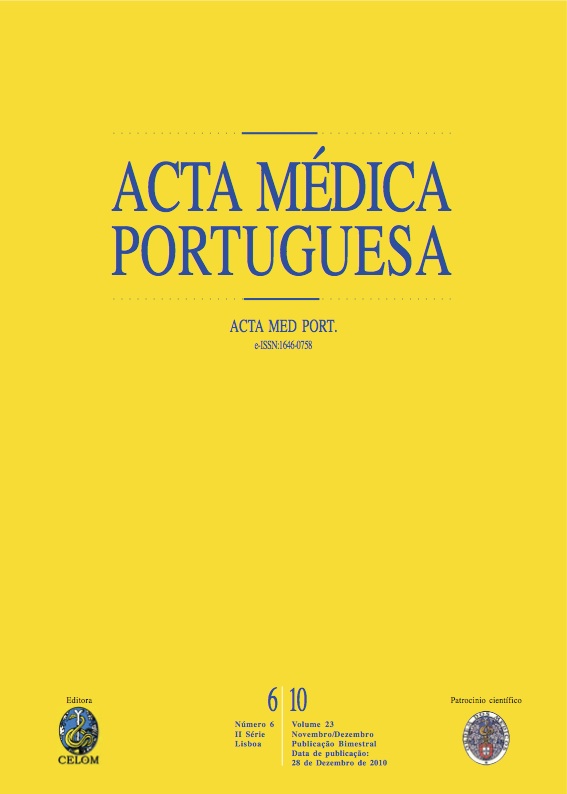Intervenção precoce na psicose: período pré-psicótico.
DOI:
https://doi.org/10.20344/amp.742Resumo
Psychotic disorders, namely schizophrenia, are severe illnesses with their onset in adolescence or youth adult age and have a classic limited outcome. In recent years there has been some research about early intervention in psychosis which can be done in prepsychotic period (prodrome) and/or after the onset of full blown psychotic episode. The authors review the literature about the diagnosis, evaluation, and possible interventions in patients in prepsychotic period (prodrome). Identification of patients with ultra high risk of psychosis could identify patients with a risk of development psychosis in 40%. The main interventions, pharmacological and psychosocial treatments, and main published studies are explained. Prospective identification of these patients and their treatment could prevent the development of full blown psychosis, delay the onset or promote the recovery of the disorder. We must remember some ethical issues about this kind of intervention, namely the stigma and false positive individuals. The results from the research in this area are mainly preliminary, but these studies suggest that some interventions are effective and promising. In future we must have trials with more number of patients included and probably a refinement of the criteria of ultra high risk patients.Downloads
Downloads
Como Citar
Edição
Secção
Licença
Todos os artigos publicados na AMP são de acesso aberto e cumprem os requisitos das agências de financiamento ou instituições académicas. Relativamente à utilização por terceiros a AMP rege-se pelos termos da licença Creative Commons ‘Atribuição – Uso Não-Comercial – (CC-BY-NC)’.
É da responsabilidade do autor obter permissão para reproduzir figuras, tabelas, etc., de outras publicações. Após a aceitação de um artigo, os autores serão convidados a preencher uma “Declaração de Responsabilidade Autoral e Partilha de Direitos de Autor “(http://www.actamedicaportuguesa.com/info/AMP-NormasPublicacao.pdf) e a “Declaração de Potenciais Conflitos de Interesse” (http://www.icmje.org/conflicts-of-interest) do ICMJE. Será enviado um e-mail ao autor correspondente, confirmando a receção do manuscrito.
Após a publicação, os autores ficam autorizados a disponibilizar os seus artigos em repositórios das suas instituições de origem, desde que mencionem sempre onde foram publicados e de acordo com a licença Creative Commons









